in the wild! Monstera
The acuminata (Monstera acuminata) is a smaller variety that's typically found climbing up other plants in the wild. While it looks similar to the adansonii with small, pointed leaves, what sets it apart is that young plants have heart-shaped, thick, waxy leaves that don't have holes until they've matured for several years.

Image result for wild monstera growing on wall Big Indoor Plants, Plant Decor Indoor, House
Monstera deliciosa, the Swiss cheese plant [2] or split-leaf philodendron [3] is a species of flowering plant native to tropical forests of southern Mexico, south to Panama. [4] It has been introduced to many tropical areas, and has become a mildly invasive species in Hawaii, Seychelles, Ascension Island and the Society Islands.
Found this beautiful monstera adasonii growing in the wild by a waterfall in central Brazil this
1. Monstera deliciosa in the wild Monstera deliciosa, or Monstera as it's more commonly known, is a tropical plant that's native to the rainforests of Central and South America. It's an evergreen climbing vine that can grow up to 20 feet in length, and its large, glossy leaves make it a popular houseplant.
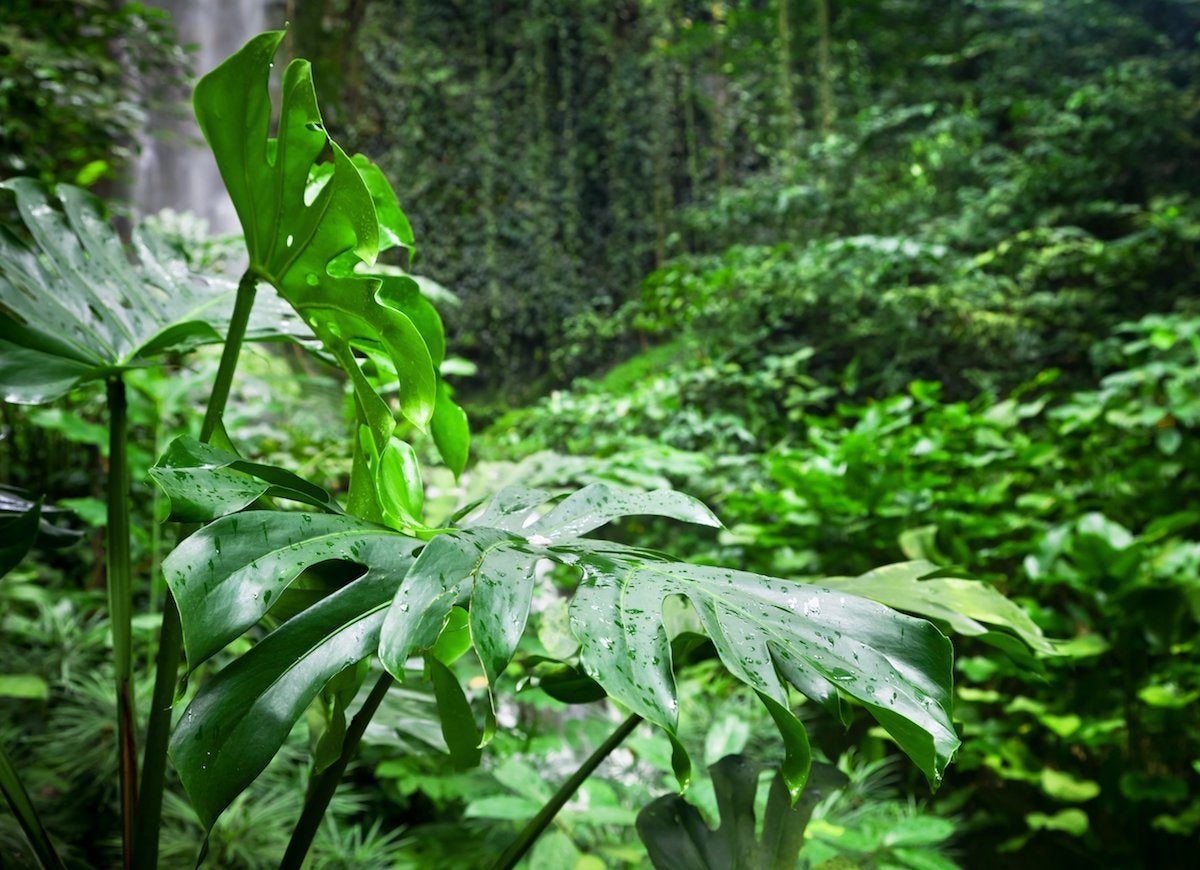
Native Plants 10 Houseplants in Their Natural Environment Bob Vila
Wild Monstera is found in the dense, humid, and lush tropical regions of Central American countries like South Mexico, Belize, Honduras, El Salvador, Costa Rica, and Panama. Finding Monstera in the wild isn't exactly easy, though!
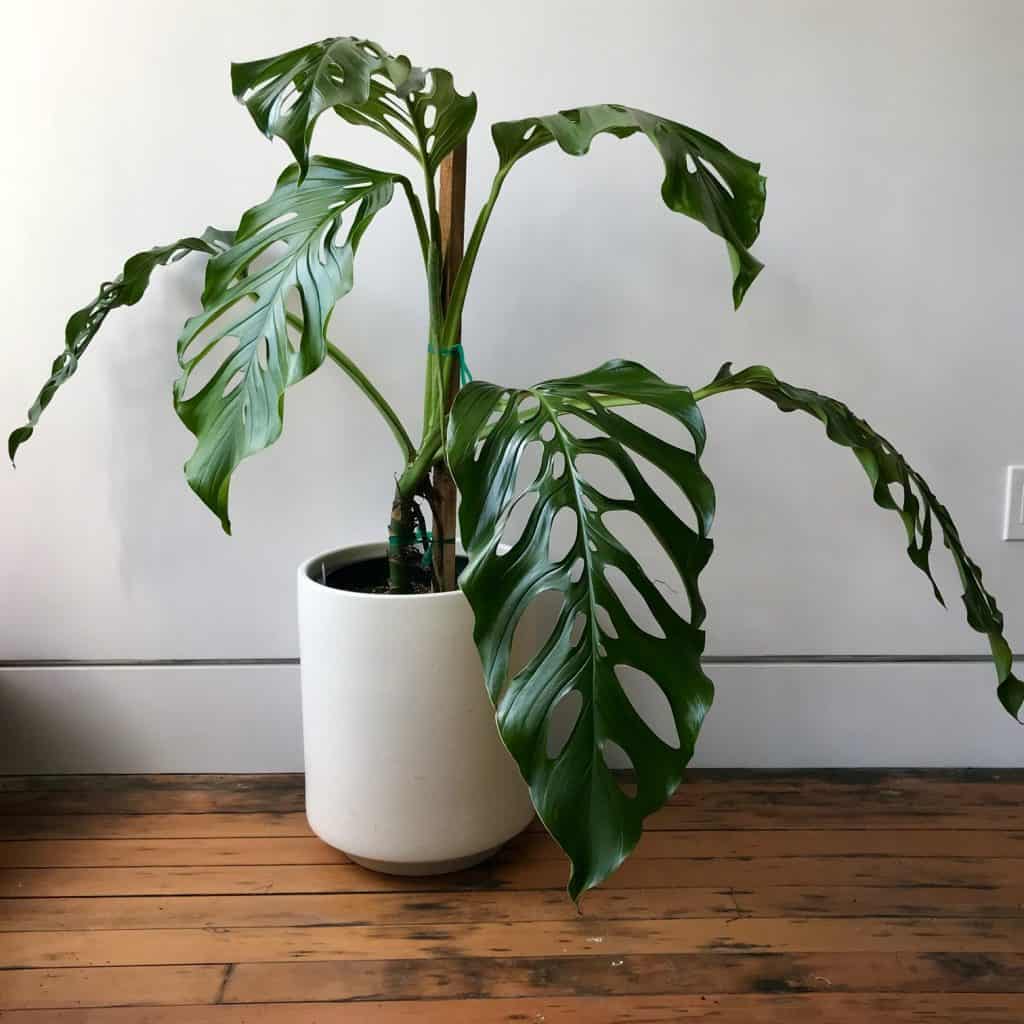
16 Types of Monstera Different Varieties to Grow Paisley Plants
Gardening 7 Monstera Plants in the Wild "Monstera", is a popular genus that has over 45 plant species under it, which are hemi epiphytes (plants with two growth phases- terrestrial i.e. living on land, and epiphyte i.e. a plant that grows on another plant without being parasitic in nature).

Monstera Deliciosa Propagation How To Propagate A Swiss Cheese Plant
Monstera Albo, also known as Variegated Monstera or Monstera deliciosa Albovariegata, is a stunning and highly sought-after plant known for its unique variegated leaves. In recent years, it has gained tremendous popularity among plant enthusiasts and collectors.

How The Variegated Monstera Became An Instagram Obsession — Plant Care Tips and More · La
In the wild, Monstera plants like to climb. To encourage your Monstera to climb upwards, you can stake wild offshoots with a dowel or use a moss pole. To trim your Monstera, be sure to use clean, sharp Plant Snips. Monstera Adansonii. LIGHT Your Monstera Adansonii prefers bright indirect light. It can survive in lower light conditions but.

Image result for wild monstera growing on wall Thực vật, Ý tưởng trang trí, Ý tưởng phòng khách
02 of 15 Monstera Acuminata (Monstera Acuminata) Firn / Getty Images If you're lucky enough to find this rare species, it's a great choice for small, tight-for-space apartments or for trailing over hanging baskets. It looks similar to Monstera adansonii, but the foliage and height are more compact. Native Area: South and Central America

There's something truly special about the way monstera grows in the wild it finds its way up
It is native to Central America and Southern Mexico but can be found growing in many other tropical areas, including the southeastern United States and Hawaii. If you have seen these Monstera deliciosa growing in the wild, you will know that they can be found clinging to trees as high as 70 feet.

Olivra Homedecor on Instagram “Massive hanging Monstera living outdoors🤗 Who needs one of these
6 mins You probably already know Monstera as one of the most popular houseplants. This plant has beautiful, glossy green foliage, making your home significantly fresher and cleaner. But do you know anything about Monstera in the wild? In the wild, this kind of plant comes in many different varieties with different characteristics.
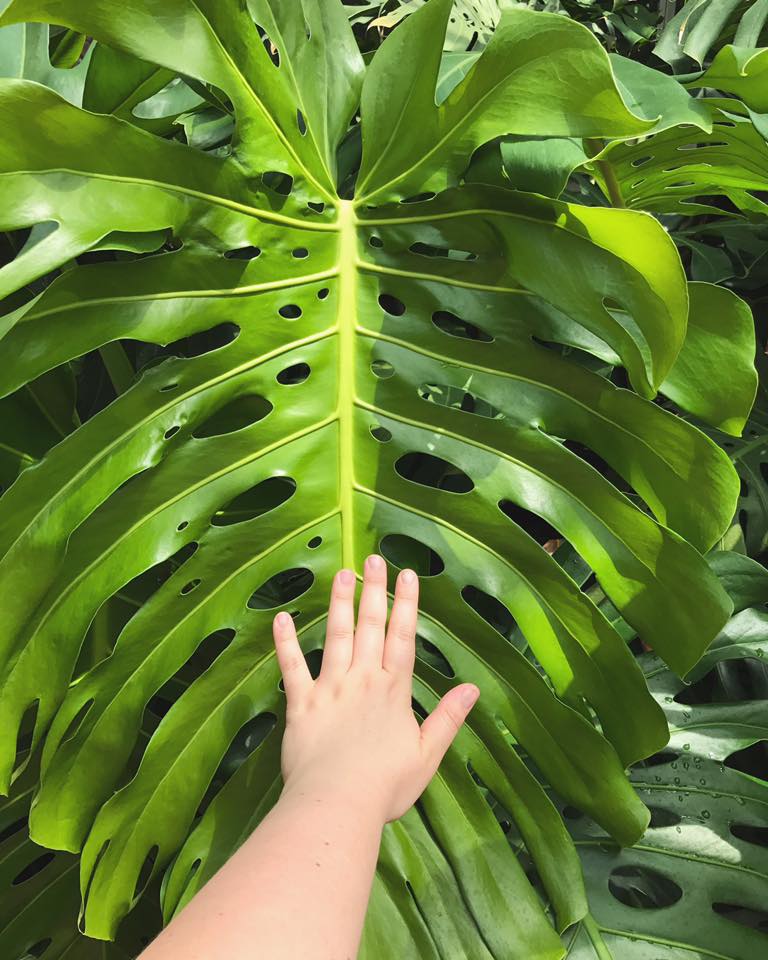
Plant profile Monstera deliciosa — Stamen & Stem
When most of us think of Monstera plants, we imagine an Instagram-worthy living room corner where the huge, glossy leaves of a Monstera climb up an ornate trellis or extend from a fancy ceramic pot.. In the wild, the Monstera earns its nickname as the "fruit salad plant," tantalizing taste buds with its sweet, tropical flavors. But it.
Y'all, for Monstera Monday I just have to show off this VARIEGATED Monstera I found at TRADER
Growing up to 20 feet in the wild, Monstera adansonii are great for climbing up moss poles (or terrariums if you're prepared to trim regularly!) See Monstera adansonii on Etsy. Also commonly referred to as Monstera friedrichsthalii, these easy growing plants are a good starting point for new plant parents.
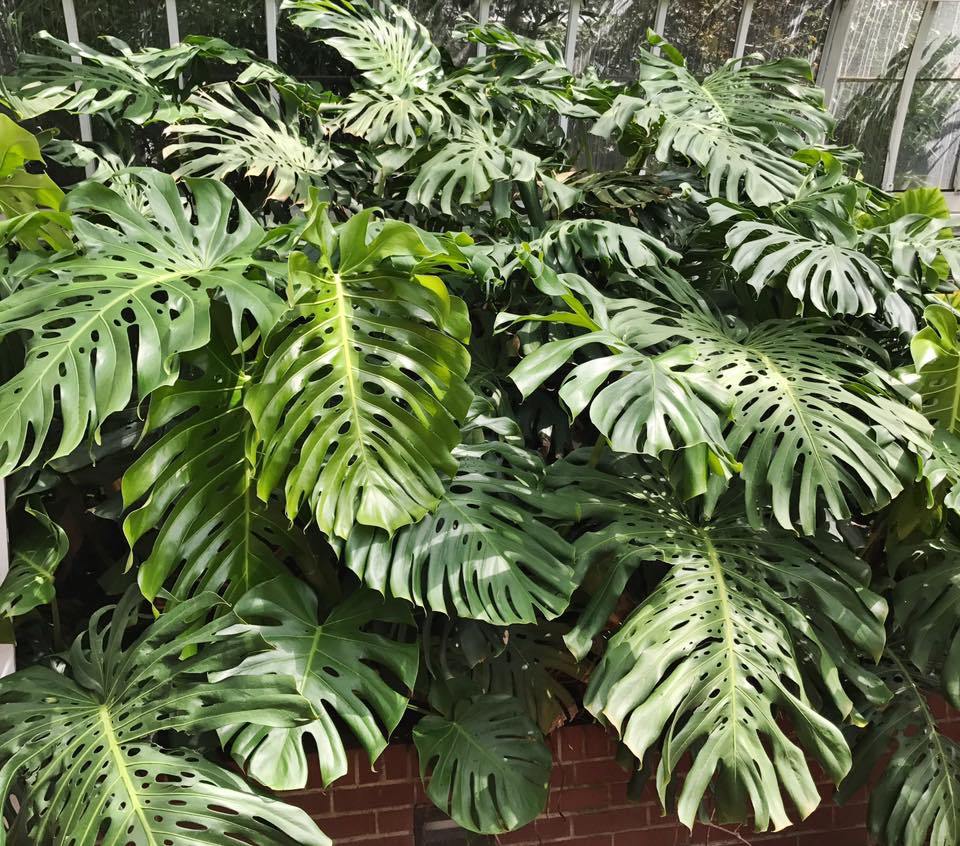
Monstera Deliciosa Care — House Plant Hobbyist
1. Monstera Deliciosa (Split-Leaf Philodendron): The Monstera Deliciosa is the quintessential Swiss Cheese Plant, featuring large, perforated leaves that resemble intricate works of art. In the wild, it thrives in the tropical rainforests of Central America, clinging to the trunks of trees for support.

Monstera deliciosa Brian's Botanicals
Have you ever wondered how they look in the wild? Let us look at what each looks like in their natural habitat. 1. Monstera deliciosa in the wild M. deliciosa (Swiss cheese plant, split-leaf philodendron, ceriman, or Mexican breadfruit) is the most popular Monstera houseplant native to southern Mexico to Panama.

Monstera in the wild Unusual plants, Tropical landscape design, Planting flowers
In the wild, Monsteras are classified as hemiepiphytes. This means they grow along trees and use them as a support to climb away from the soil. Hemiepiphytes derive moisture and nutrients from the soil using their aerial roots. That way, they reach tremendous heights while still depending on the soil to suck moisture and nutrients.

7 Monstera in the Wild Including Monstera Deliciosa (with Pictures) Homes Pursuit
Monstera deliciosa is an impressive species of flowering plant found in the wild from southern Mexico to Panama. With its broad, deep green leaves, Monstera deliciosa is a common sight in the tropical climates near its native home.